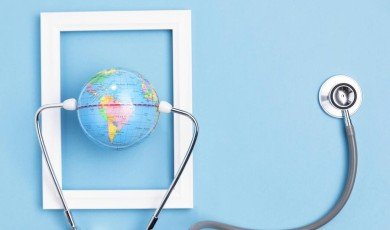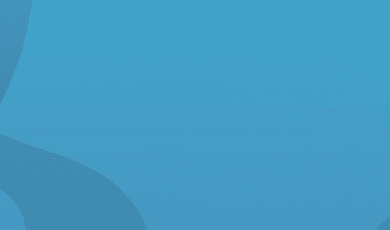Inside the New Health Economy: Are Startups Outpacing Pharma Giants?
Dive deep into how nimble startups are reshaping healthcare innovation, outmaneuvering established pharmaceutical companies with rapid solutions in communication, digital health, and localization.
Introduction: A Paradigm Shift in Healthcare Innovation
The global healthcare landscape is undergoing a profound transformation. Once dominated solely by pharmaceutical giants and traditional health organizations, the industry is now buzzing with the fresh energy of startups. From revolutionizing telemedicine to reinventing clinical data collection, startups have boldly entered the arena — and in many key areas, they are setting the pace.
As digital solutions become critical to patient outcomes and cross-border collaboration intensifies, communication in healthcare has never been more vital. Bridging language gaps, collecting precise speech data, and orchestrating global teams of localization professionals are no longer “nice to haves”—they’re mission critical. In this new health economy, agility, adaptability, and an eye for patient-centered innovation have become the differentiators.
With the rise of platforms focused on healthcare communication—including advanced translation services, specialized speech data collection, and recruitment for localization experts—the question arises: Are startups outpacing pharma giants in the race for next-generation healthcare solutions?
Navigating the New Health Economy: Startups vs. Pharma Giants
Startup Agility: Speeding Ahead with Disruption
Startup culture thrives on speed, flexibility, and bold innovation. Unencumbered by legacy systems or bureaucratic barriers, startups can pivot rapidly to respond to emerging health crises or regulatory changes. In the realm of healthcare communication, they are launching platforms that translate medical records in real-time, automate multilingual patient outreach, and recruit experts for swift localization—all key to breaking down barriers in global care.
For example, newer platforms provide:
- Instant translation for telehealth consults: Ensuring patients and providers understand each other regardless of language.
- Speech data collection tailored for rare languages: Supporting more accurate AI-powered diagnostics for diverse populations.
- On-demand staffing of localization professionals: Enabling health systems and pharma companies to adapt quickly to global market needs.
These advancements align perfectly with the needs of an interconnected, multicultural healthcare market. Startups are not only filling gaps in patient communication, but often predicting where those gaps will appear next.
Pharma Giants: The Power of Resources and Scale
The major pharmaceutical companies, meanwhile, bring deep pockets, years of regulatory know-how, and vast data resources to the table. Clinical trials, drug development, and global distribution require investments that only large organizations can muster. Pharma giants have the infrastructure to bring drugs to market on a global scale and have long-established relationships with regulators, payers, and providers.
However, their sheer size often leads to slower adoption of groundbreaking digital solutions—especially internal communication tools, patient engagement platforms, and AI-driven localization services. It’s not a lack of interest, but rather the challenge of scaling new systems across huge, complex organizations.
The Intersection: Collaboration or Competition?
Increasingly, we’re seeing a blending of strengths. Pharma giants, recognizing their limitations in agility and bleeding-edge digital innovation, are partnering with or acquiring startups that excel in these spaces. According to a recent survey by McKinsey, nearly 60% of healthcare innovation partnerships in 2023 involved digital health startups and traditional pharmaceutical organizations.
These collaborations highlight the recognition that communication technology, especially in localization and patient outreach, can drive better clinical outcomes. Localization—traditionally an afterthought—is now a strategic priority, as companies seek to break into new markets and engage patients with culturally relevant, accessible care.
In Focus: Healthcare Communication Platforms
At the heart of this transformation are platforms dedicated to enhancing healthcare communication. These platforms address pain points that have stymied researchers, clinicians, and patients for decades:
- Language barriers in clinical trials leading to recruitment delays.
- Cultural misunderstandings causing patient disengagement and dropout.
- Inefficient recruitment of localization professionals slowing down time-to-market for new therapies and solutions.
The next wave of platforms is leveraging AI, cloud computing, and crowd-sourced expertise to solve these challenges. Automated translation engines trained on medical speech, rapid deployment of medical interpreters, and sophisticated project management of localization workflows represent a quantum leap from the patchwork solutions of the past.
Real-World Examples: Startups in Action
- Doctolib & Babylon Health: These healthtech startups revolutionized digital patient access and internationalized outreach, helping patients book appointments, access telehealth, and receive aftercare in their native languages.
- Unbabel & Lilt: Language startup success stories, these companies streamlined translation and localization in highly regulated industries—including pharma—using AI-assisted workflows and a global network of vetted linguists.
- DeepScribe: By leveraging AI-powered speech recognition for medical note-taking, DeepScribe helps practices streamline EHR data entry, making health records accessible across multiple languages and markets.
These startups not only accelerate access to care, but also integrate localization at the very foundation of patient and provider experiences.
Bridging the Talent Gap: Recruitment for Localization Professionals
As demand for globalization grows, so too does the need for medical translation, terminologists, project managers, and multilingual communicators in healthcare. Startups are developing bespoke recruitment solutions, rapidly onboarding professionals with clinical experience and linguistic expertise. This talent pipeline is empowering pharma companies, healthtech organizations, and hospitals to go global—faster and with greater precision.
Data-Driven Approaches: Speech Data Collection and AI
Beyond translation, the gathering and annotation of clinical speech data is unlocking new frontiers in machine learning and personalized medicine:
- Startups are collecting diverse, high-quality speech data sets, refining natural language processing tools for accents, dialects, and rare medical vocabularies.
- These data sets power virtual health assistants, improve diagnostic chatbots, and make clinical AI systems accessible to a broader patient population.
In contrast, pharma’s legacy systems often struggle to handle unconventional data types—another example of startups’ agility giving them an edge.
Conclusion: Startups, Pharma, and the Future of Global Health Communication
The question isn't whether startups are outpacing pharma giants—they already are in many facets of healthcare communication, localization, and speech data innovation. Their speed, access to bleeding-edge technology, and deep understanding of patient-centric design mean they can rapidly deploy solutions needed in today’s interconnected health economy.
Yet, the story doesn’t end in competition. Rather, the greatest opportunity lies in collaboration. Pharma companies, startup innovators, and specialized healthcare communication platforms are forming an ecosystem where each can contribute unique strengths. For pharma giants, this means adopting startup solutions for communication—leveraging AI translation, fast localization, and data-driven patient engagement. For startups, it means scaling their impact by tapping into the reach, resources, and regulatory expertise of industry incumbents.
As healthcare becomes ever more global, empowering diverse patients and providers to communicate seamlessly is non-negotiable. The platforms of the future—built on agile, interoperable, and culturally aware technology—will set new standards of care and open untapped markets. Our upcoming platform is poised to deliver precisely this: smarter, faster, and more inclusive healthcare communication at scale.
Are startups outpacing pharma giants? In communication, localization, and speech data innovations, the answer is a resounding yes. But the leaders of tomorrow will be those who champion partnership, embrace technology, and put patient understanding at the heart of global health.
Stay tuned as our site develops into the healthcare sector’s go-to solution for transformative communication services—bridging the divide between languages, cultures, and innovation itself.








